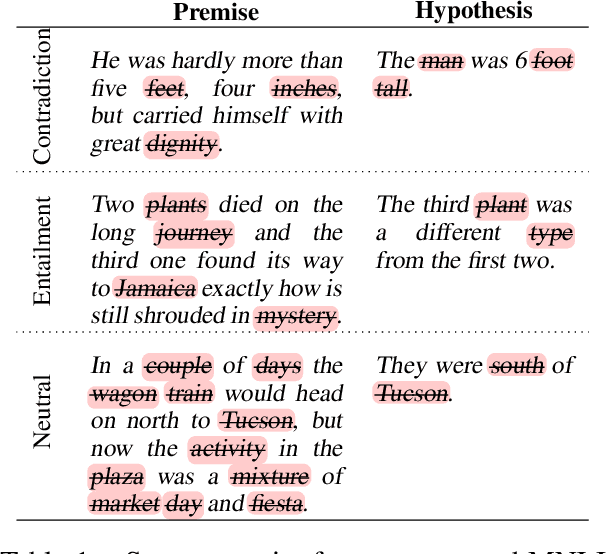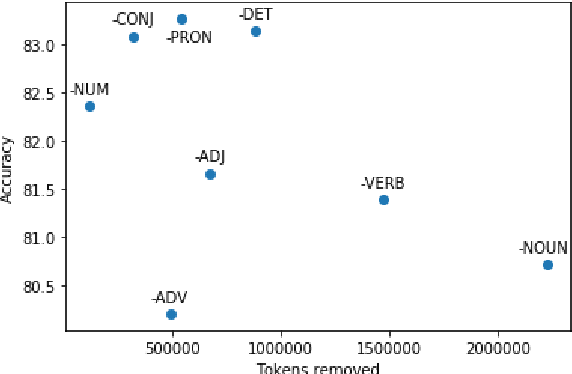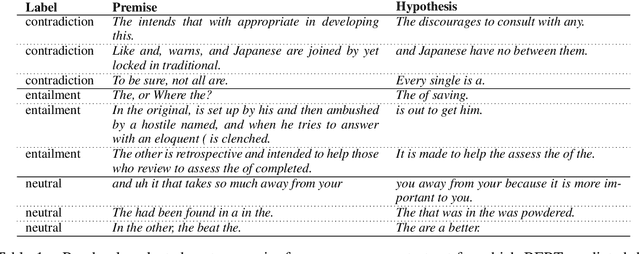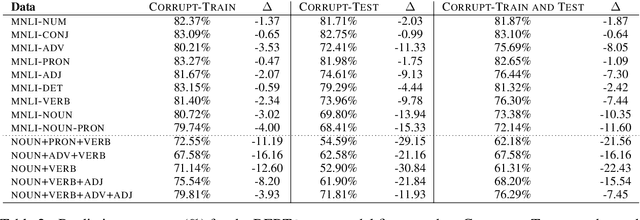NLI Data Sanity Check: Assessing the Effect of Data Corruption on Model Performance
Paper and Code
Apr 10, 2021



Pre-trained neural language models give high performance on natural language inference (NLI) tasks. But whether they actually understand the meaning of the processed sequences remains unclear. We propose a new diagnostics test suite which allows to assess whether a dataset constitutes a good testbed for evaluating the models' meaning understanding capabilities. We specifically apply controlled corruption transformations to widely used benchmarks (MNLI and ANLI), which involve removing entire word classes and often lead to non-sensical sentence pairs. If model accuracy on the corrupted data remains high, then the dataset is likely to contain statistical biases and artefacts that guide prediction. Inversely, a large decrease in model accuracy indicates that the original dataset provides a proper challenge to the models' reasoning capabilities. Hence, our proposed controls can serve as a crash test for developing high quality data for NLI tasks.
 Add to Chrome
Add to Chrome Add to Firefox
Add to Firefox Add to Edge
Add to Edge